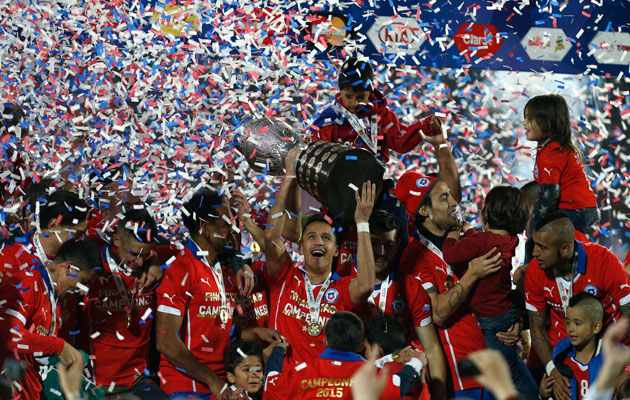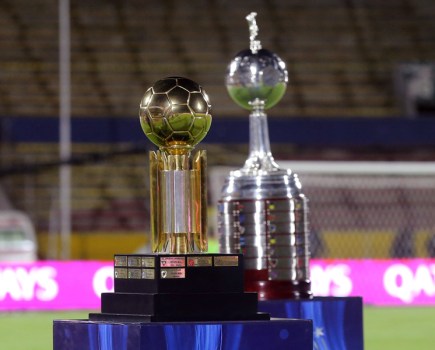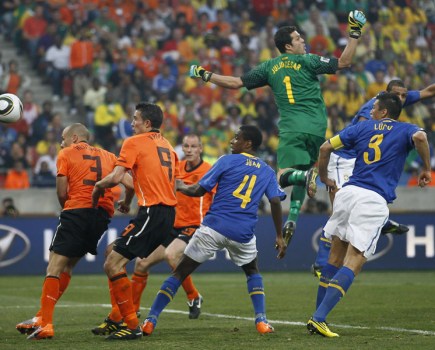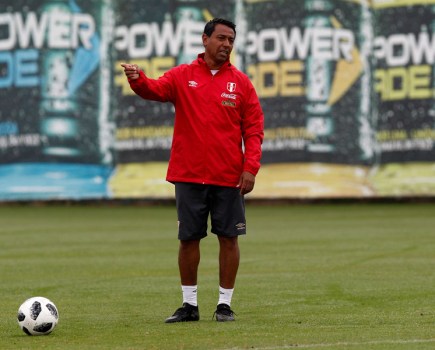A penalty shoot out after a goalless draw was perhaps not the most satisfying way for Chile finally to win an international tournament – or the most fitting. Because what makes the current Chile side so watchable is a bold commitment to attack, a faithfulness to an idea of play introduced by Marcelo Bielsa and refined by Jorge Sampaoli.
Both the substance and the manner of Chile’s Copa America triumph was recognised with the nomination of Sampaoli among the world’s top three coaches in the annual FIFA awards. This can also be seen as a consequence of the indisputable fact that national team football in South America has never enjoyed such strength in depth.
Ecuador enjoyed their best ever World Cup in 2006, Paraguay in 2010 and Colombia in 2014. The last two have been the best ever for Chile, with the exception of 1962, which they hosted. And in those last two World Cups, only one South American side – Ecuador in Brazil 2014, narrowly and somewhat unluckily, failed to make it out of the group phase.
And it is Ecuador who are currently showcasing the potency of the national team game in the continent. Back in June they failed to make it out of the group stage of the Copa America. A pause to regroup and a defensive rethink later, they have come roaring out of the blocks in World Cup qualification, winning all four of their first matches. The successful run began with a historic and thoroughly deserved triumph away to Argentina – who shortly before had come very close to being crowned continental champions, and who nearly won the World Cup in 2014.
Bolivia have been playing their meagre hand badly, and Venezuela have some internal turmoil to add to the need for a rebuilding of their national team. All the other South American countries – because Peru are capable of better – are in the hunt for a place in Russia 2018, in a qualification campaign that promises to go all the way to the wire, combining both drama and quality.
But the same, emphatically, cannot be said about the club game in the continent. From a South American point of view, the much prized and anticipated Club World Cup has become an annual horror show, a painful display of the contemporary limitations of once great clubs. The gap between Europe and South America has become a chasm, a process which has taken place since the turn of the century. The top European clubs have become stronger, accumulating talent from the four corners of the globe. The South American clubs, meanwhile, have sold so much of their talent that they have slipped alarmingly backwards. Indeed, it is no longer clear that the South American champions are superior to the representatives of the other continents. These days it seems to be a case of Europe on the one hand, and the rest of the world on the other.
The dearth of quality in the local game was made clear with the choice, in the last week of the year, of the best player in the 2015 Copa Libertadores, the continent’s Champions League equivalent. The chosen man was Ecuadorian right sided attacker Joffre Guerron, who had previously won the award playing in his native land for 2008 champions LDU. He is now with Tigres of Mexico, and had his moments in this year’s competition. But when, towards the end of the campaign, Tigres bought in some attacking re-enforcements, Guerron lost his place in the team. In the final, when his team were beaten 3-0 on aggregate by River Plate, he was only used for the last 15 minutes of the second leg, by which time the destiny of the title had already been decided.
Some other players perhaps had a better claim to be named the tournament’s outstanding player – Carlos Sanchez of River Plate, for example. But, as Sanchez and his colleagues went on to show in the Club World Cup, in global terms there was little in the way of outstanding quality in the line up of the continental champions.
This, of course, is the link between the strength of national team football in South America and the weakness of its club game. Two decades ago Ecuador had no tradition of supplying players to top European leagues. Now, remarkably, there are plenty making an impression in England’s Premier League. The current generation, then, are picking up top level experience beyond the dreams of their predecessors. So also, unlike their predecessors, there is no lack of self-esteem when they walk on to the pitch at Buenos Aires’ Monumental stadium. One of the mismatches of the year, in that 2-0 win over Argentina, was Manchester United right winger Luis Antonio Valencia against San Lorenzo left back Emmanuel Mas.






